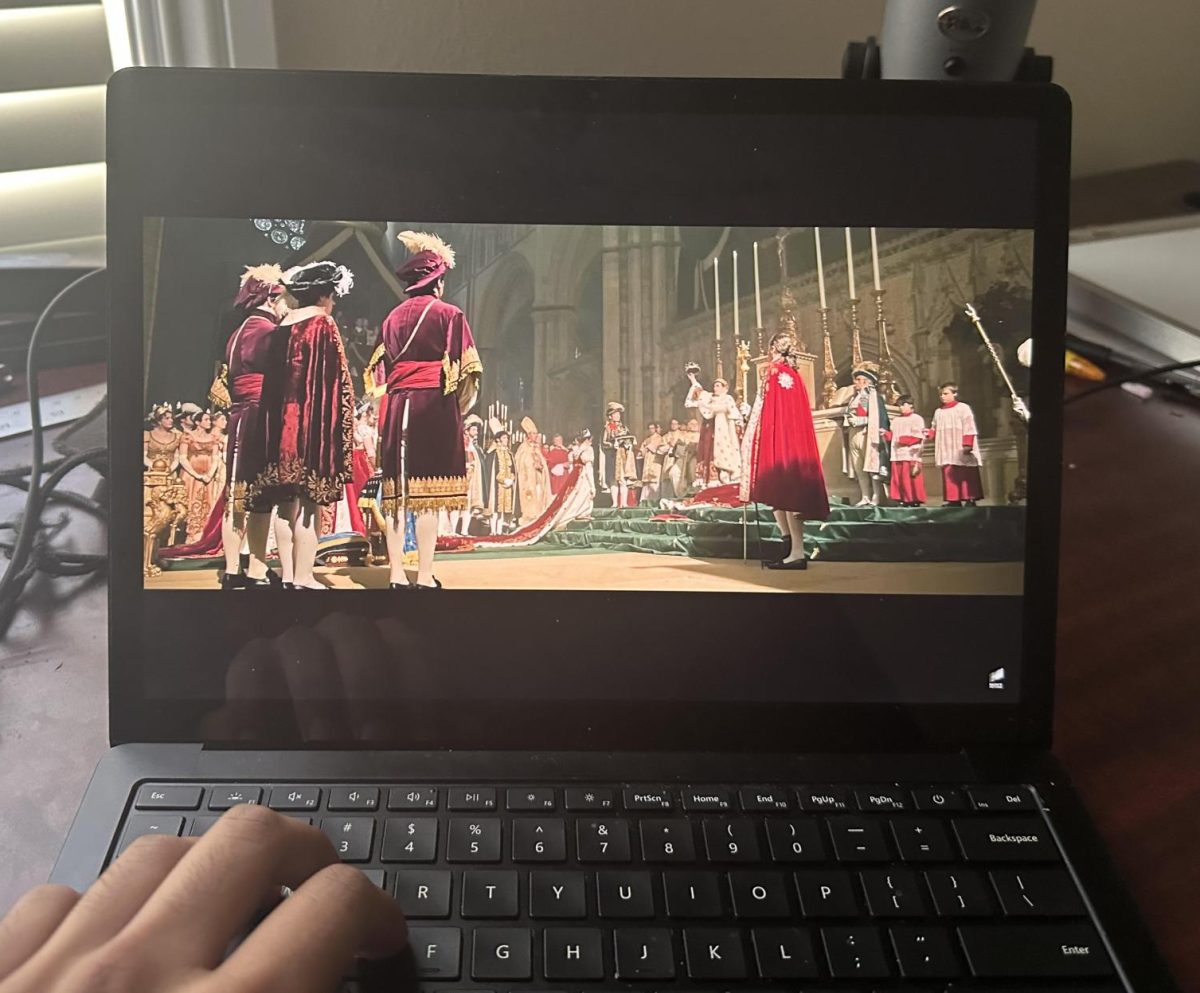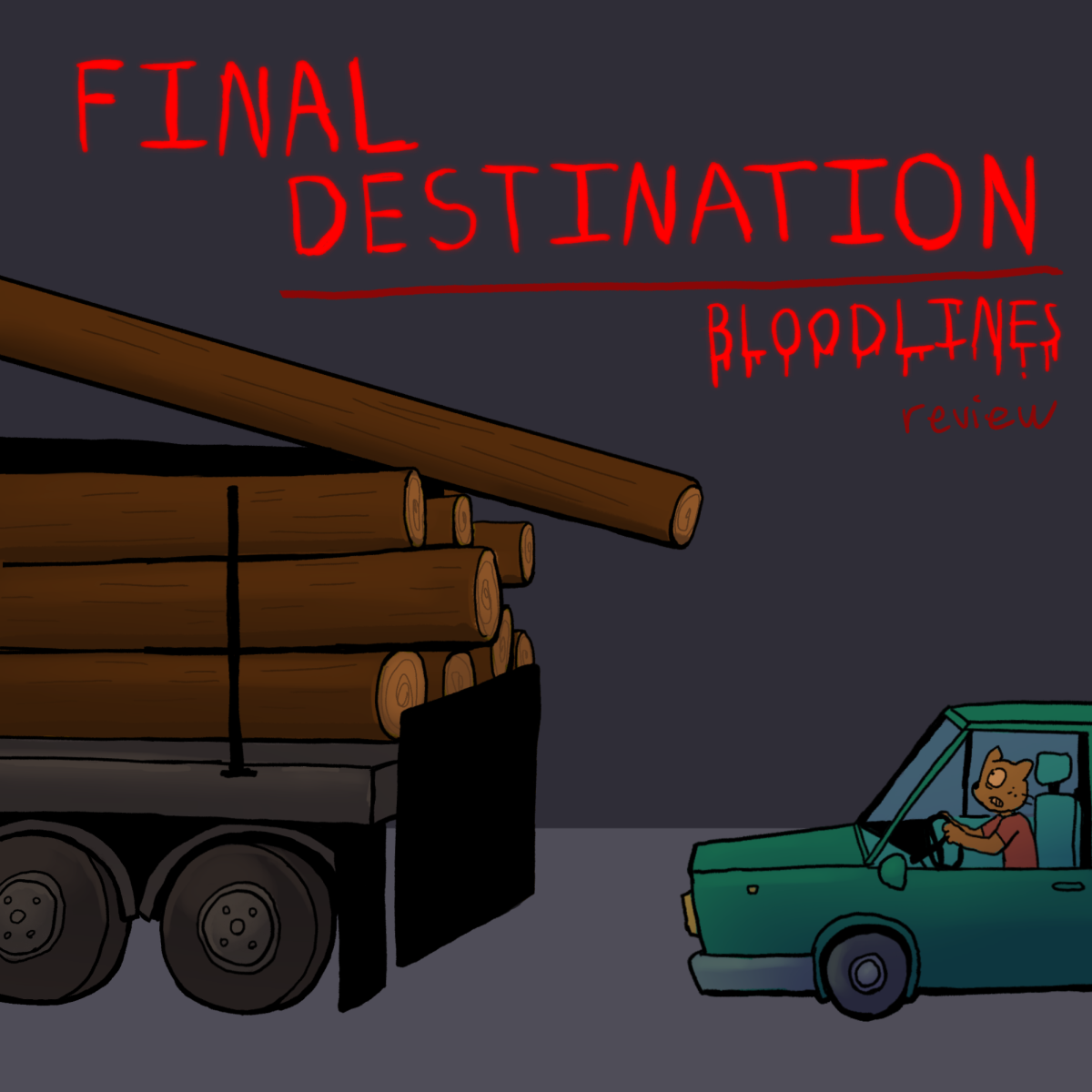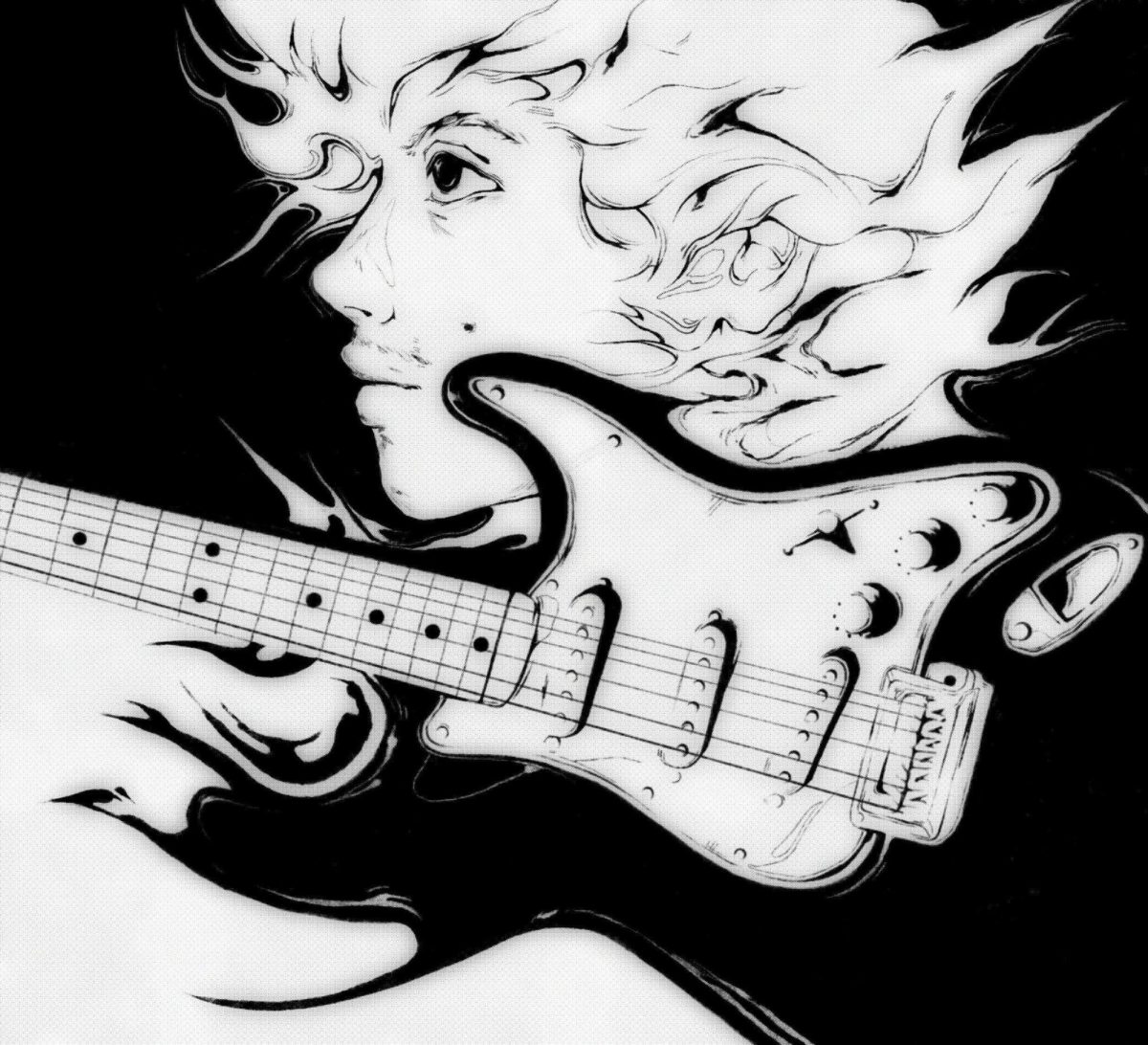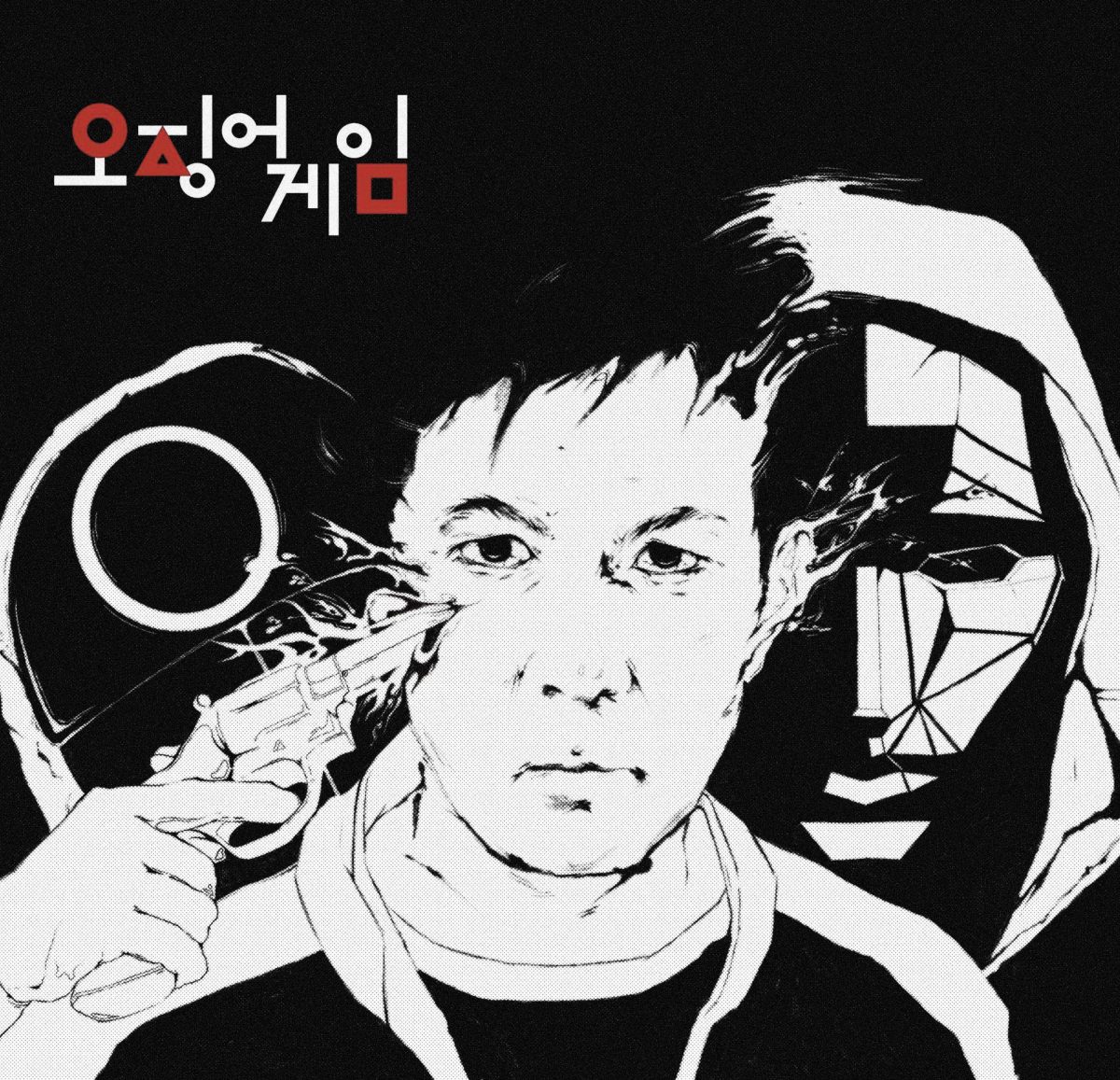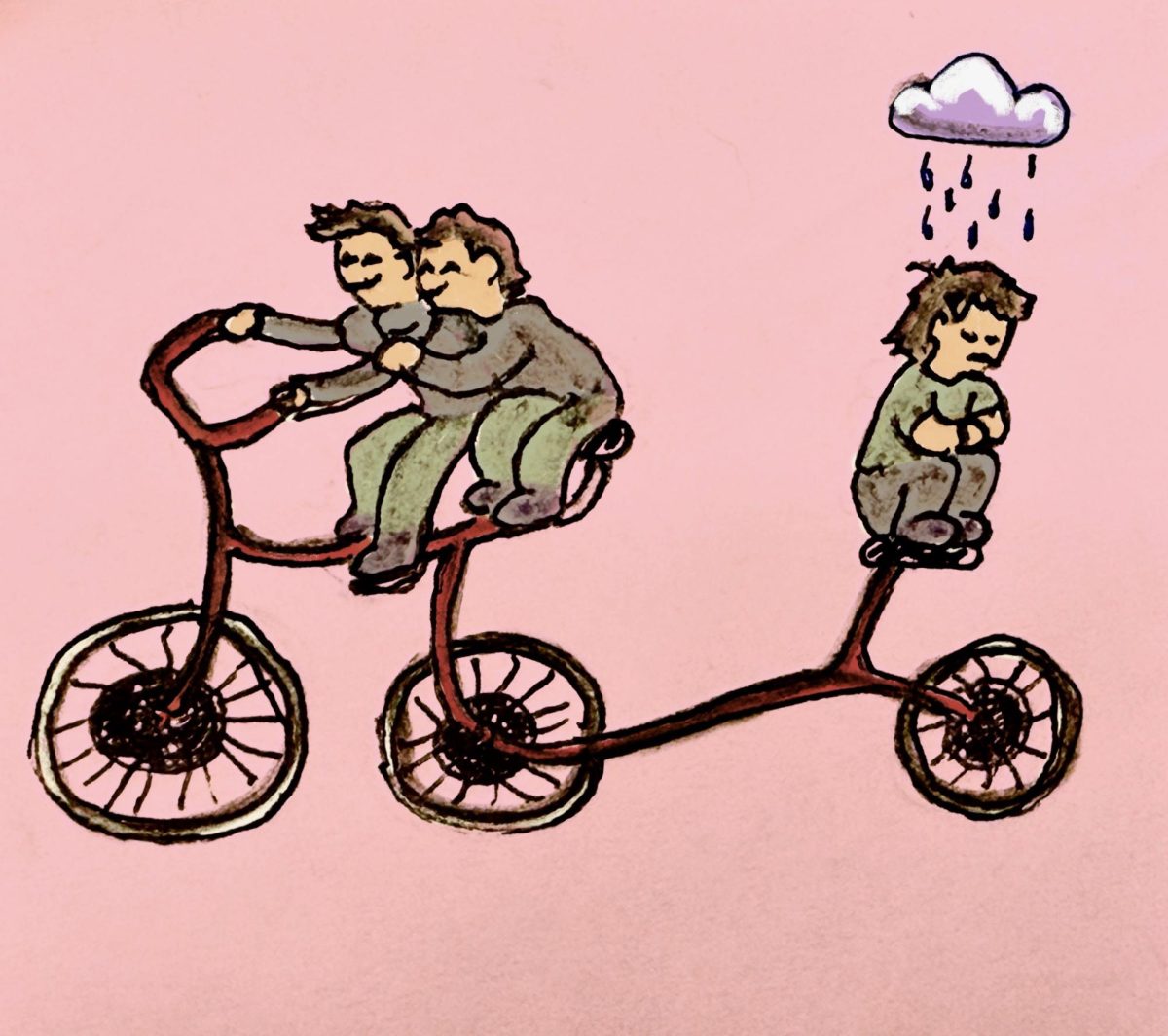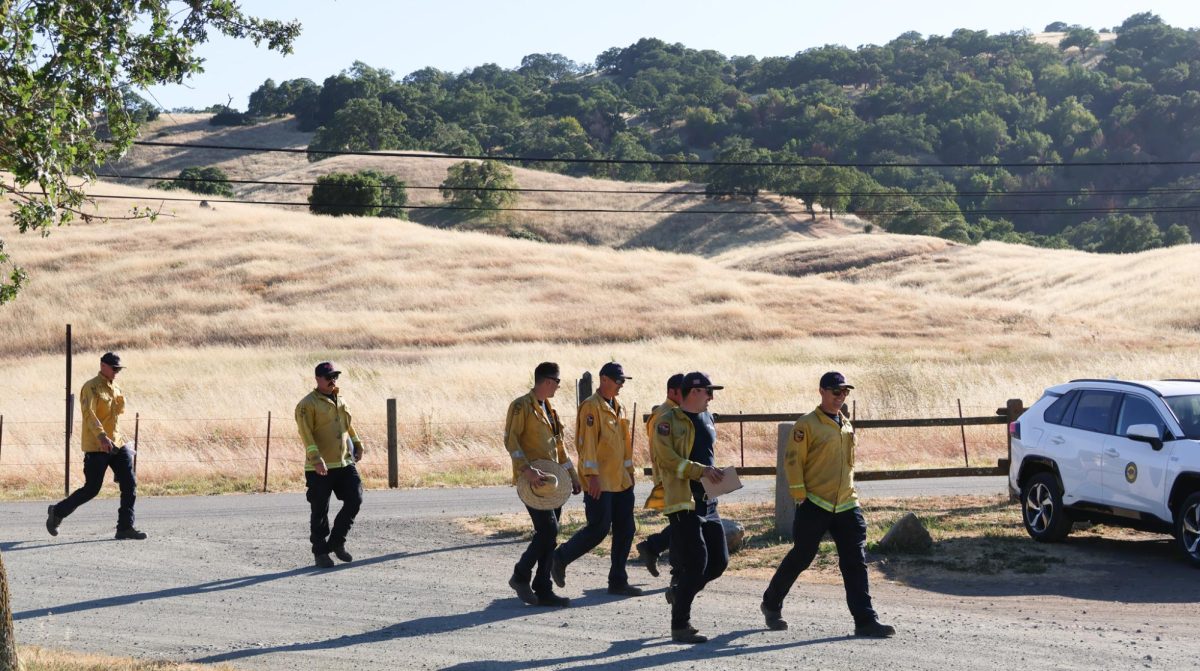“Napoleon,” a historical drama produced and directed by Ridley Scott, starring Joaquin Phoenix as Napoleon Bonaparte, has its bright spots but fails to create a compelling narrative around Napoleon Bonaparte’s personal life and his conquest of Europe.
The movie was released to theaters on Nov. 22 with a two hours and 38 minutes runtime.
The movie begins with Queen Marie Antoinette being beheaded during the French Revolution. Shortly afterwards, Napoleon is tasked with controlling the new French army following the revolution.
A significant portion of the film focuses on the relationship between Napoleon and his first wife, Josephine Bonaparte, which has its fair share of problems. For example, Josephine was unsatisfied with Napoleon and cheated on him with a younger lover, Hippolyte Charles.
Additionally, Napoleon, impatient to have an heir to the throne, impregnates a mistress and publicly divorces his wife. These story arcs, although somewhat funny at times, seem pointless in comparison to the immense and impressive battles sandwiched next to them.
The five battle sequences sprinkled throughout the movie feel much more impactful and huge in scope. The music is also a strong point; the score accompanying the Battle of Austerlitz does a particularly excellent job of adding weight to the scene.
As a whole, the cinematography and the song selection shine and elevate otherwise average and uninteresting scenes.
As the movie progresses, it becomes increasingly difficult for non-history buffs to gauge the progress of the Napoleonic wars as the movie transitions between conflicts with Russia, Austria, and the United Kingdom in a fast and confusing way.
Moreover, various historical inaccuracies throughout the film make it so that those interested in its history would likely get turned off as well.
For instance, Napoleon is portrayed as an awkward and disliked emperor, which is historically false. In reality, he was incredibly charismatic, which partially explains his quick ascent to power and widespread approval.
In my opinion, a movie can have some reasonable twists compared to the original story if it makes for a more entertaining and palatable story.
For example, during the invasion of Egypt, Napoleon’s troops are shown to fire cannons at the Pyramids of Giza. Although this didn’t happen, it was an exciting scene.
Additionally, Napoleon didn’t actually witness the execution of Queen Marie Antoinette, but this scene did serve as valuable context to the rest of the movie.
Unfortunately, these are just one or two successful cases in many other cases that result in contradictions and circumstances that don’t seem feasible.
It seems unlikely that a character as bumbling and incompetent as the film’s Napoleon could not only rule a world power but also conquer much of Europe.
Overall, although it contains solid direction, music, and cinematography, the lackluster pacing and writing make “Napoleon” mediocre.
Rating: 2.5/5



